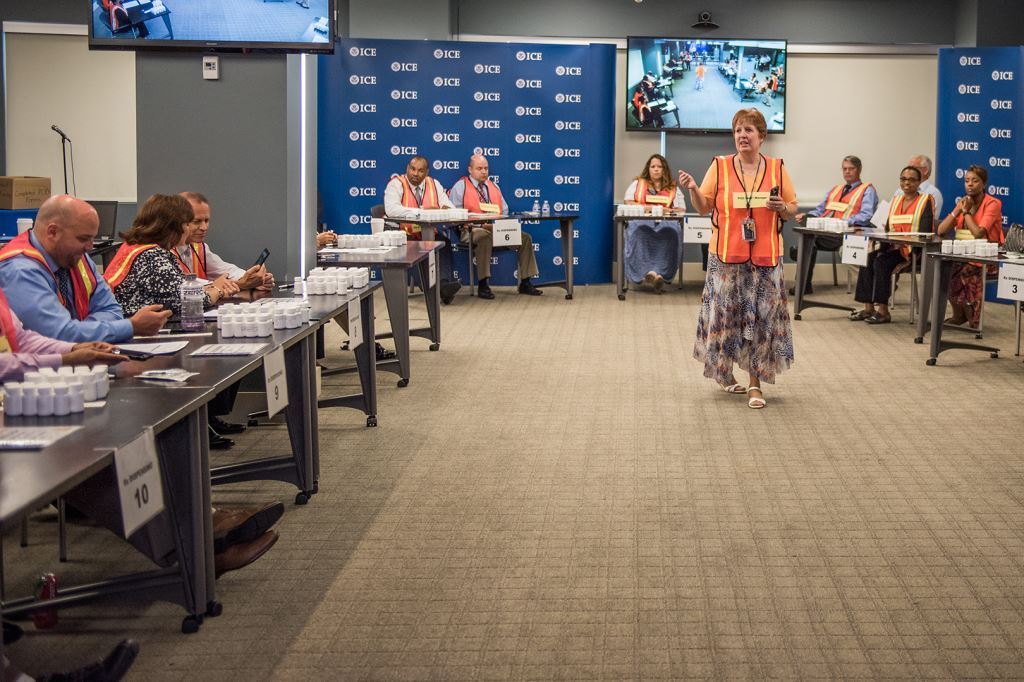ICE Emergency Management Specialist responded to and learned from active shooter incident
From the time she was a toddler, Helen Vettori, emergency management specialist from U.S. Immigration and Customs Enforcement (ICE) National Emergency Management Division, wanted to be a “fireman.” On her third birthday, she received a red peddle fire engine, complete with two wooden ladders and a shiny bell. Her family lived a block away from a dangerous intersection where traffic accidents occurred at least once a week. Vettori “responded” to those accidents in her little fire engine.
In 1977, Vettori became a paramedic with the Bethesda-Chevy Chase Rescue Squad, which defined her life for many reasons. First, she met and married a firefighter, Bob. They’ve been married for more than 30 years and have two wonderful children. Bob was one of the responders to the Pentagon on September 11, 2001.
Vettori had also responded to a crisis in 1982 when she was a paramedic in charge assigned to Medic 1, the busiest medic unit in Montgomery County, Maryland, at the time. The Friday of Memorial Day weekend of 1982 started out as an ordinary day. But then a call came in of shots fired at IBM headquarters in Bethesda, Maryland.
In this active shooter situation, a Montgomery County police officer ordered Vettori to follow him into the building.
“We both crawled military style on our bellies into the entrance, and then the officer told me ‘do your thing.’" The officer retreated, leaving Vettori to treat several people who had been shot.
“Realizing I was alone without much more than a medic kit, for a brief moment I felt afraid,” said Vettori. “Then I quickly went to work, assisting the victims.”
“I credit the hours of training and experience as the reason I was able to focus without thinking about my own safety,” said Vettori.
In fact, during this hostile environment, Vettori innovated a new treatment, which became standard care for Montgomery County paramedics.
Still, Vettori was negatively affected in the hours and days after the incident. “That’s the part of my experience that I want people to know as a way that might help others,” said Vettori. “Had I known then what I know now, I would have sought help from a support group or a Post Traumatic Stress Disorder specialist. After the incident, nightmares plagued me and the disassociation from my beloved field could have been mitigated or avoided.”
Vettori continued, saying: “Today I am a strong advocate for ensuring personnel have the knowledge of and access to programs such as the ICE Peer Support Group. It is important to seek help immediately after a crisis even if you think you are fine. I did not realize that I needed help until I was overwhelmed. No one needs to face such problems. Planning and preparing for, responding to and recovering from critical incidents should include the safety and well-being of personnel from start to finish, both physically and mentally.”
“The end may not be when the close-out report is published. Truly, a crisis is only over when everyone who was impacted by it can say without reservation that they are fine.”


